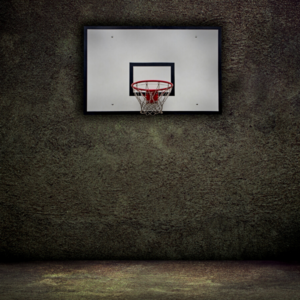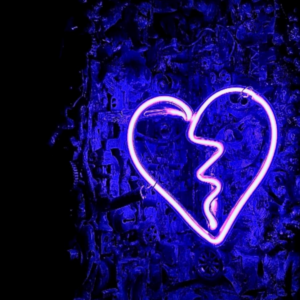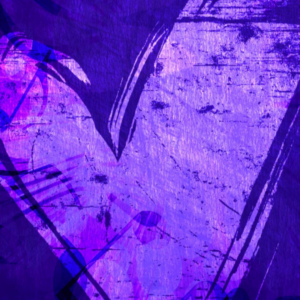The worst nightmares I have are always me running. They aren’t about my Black or my woman or my teenaged girl. They are only about the chase. What I am running from, it usually depends—sometimes it’s a man, a killer, other times I’m not sure why I’m running—but my nightmares are almost always about hiding, running, being caught. Often I wake up, breathing hard, heart beating wildly, sweating, still afraid, still in fear of the thing behind me. I’ve learned, quickly, of that feeling outside of my nightmares. I learned, by my junior year of high school, how to feel that adrenaline coming on before I closed my eyes.
I’ve spent enough time running to know when a nightmare becomes real. It isn’t worse, I have found, to not know what you’re running from—it is worse to not know you’re running at all until you are tired, out of breath, begging for it to stop. Questions are a form of chasing I think, and I, for a while, was running for my life in every direction.
No one ever wants to be questioned, of course, but I think there is some sort of disconnect. I did not want my life to be questioned. I did not want anyone to ask me whether I was telling the truth about my own pain—my own blackness. I took a test to get into my predominantly white school at four years old and never knew until now that this would be a constant test. It took me ten years to understand that something was wrong, and after that, I became only a fighter. I had to say no to every incorrect notion they had. It was my job, of course, to teach them how blackness functioned within a living, breathing girl or else who would teach them. One boy, though, never let up, always had another question, always wanted to squeeze that invisible noose tighter.
I would fight with him so habitually it felt like an inevitable haunting. The boy was one of my closest friends for years. He enrolled in fifth grade, and I had been in nearly every class with him since then. My friends in high school were almost all white. We were kind and polite and never drank and always turned our homework in on time. We didn’t have many male friends, but the boy was one of them. And he was one of the good ones to us. After some time, he wore me down. He became a close friend who had helped me through so many slow unravelings, who would laugh at the witty jokes, and who made me feel like I was “one of the boys,” which really meant that to them, I was smart and indestructible. I wish now that I wasn’t one of them. I want to be one of me now. Just one whole me.
I did not want the argument. I wanted them to listen and possibly learn. I wanted any type of okay. But all I ever got was high blood pressure and a sick stomach. The fights were always in a hallway or a classroom or sitting on a bench in the library. Sometimes they were over text, which eliminated the little humanity he saw in me. And they weren’t about Trump or Hillary, they were about the small things that my brown and woman saw differently. Mostly it was, Is mass incarceration better than Jim Crow? Or Do western math classes perpetuate white supremacy? The math question was actually interesting. In that case, I would say yes. By now, I could feel the fight coming, and I knew it wouldn’t be good. But always, I was going to fight. Always, I had to tell them a truth they would not believe. I couldn’t hold back, I couldn’t let anyone believe something about my blackness that wasn’t true. Our lives depended on it.
He brought it up in the hall before class. He tells me to look at the article he’s sent to me, almost as a joke, but when I agree with the writer, he is suddenly in debate mode. He sees it as an intellectual spar, always. Even when I tell him, constantly, that it hurts me, he seems to forget, every time.
The article posits that Western Mathematics classes can perpetuate white supremacy and instantly, I am aware of another red flag I had never seen in my education. So I agree. Not that any changes need to be made to any math curriculum (I wanted to make that clear), but learning about Newton, Einstein, and all of the others in those upper-level classes could be harmful to brown students is true. Especially if white teachers teach it.
The boy was confused, flabbergasted, angry almost. The anger part was always the worst. But what about Algebra? What about the number system? Those were created by middle eastern men.
Here, I was worried. A pretty good counterargument. But, then, I was reminded that I did not know this fact. I was only taught Taylor and Riemann, not Surya Siddhanta or Brahmagupta.
The boy, of course, knows these facts as backup—as a way of diversifying his tongue. And here I was, wondering why I had to be the only one to fight this fight. Why I had to take this every time. But now, I’m stuck, and my next argument is a more “radical” one.
What if, I say, these men stole the theorems? What if, and stay with me here, white men did not hypothesize everything in existence? What if the Pyramids or the statue of Ramses were built for brown enjoyment and were considered inspiration for one Pythagoras? Or, even better, what if these proofs were created separately at the very same time, thousands of miles apart?
So you want to change all of math? Should every algorithm, and this was the kicker, be named Pythagoras and some unnamed Black person theorem?“
This doesn’t make me freeze, but my stomach turns into a solid mass. By now, there were three of them. Two of our friends are in the mix, questioning, interrogating, bitterly confused. This was my body’s point of sprinting—usually, my chest was caving in, my brain started to tick like a bomb, my face was a warming skillet, tears welling beneath the surface. Argument, or rather, the informal hallway debate, was never something I liked. For them, it was fun, entertainment, a pondering of issues. In my eyes, it was necessity. It was survival. Not for me though, I was dying. It was for every other seventeen-year-old girl in need of less ignorant white boys.
While in the thick of it, I realized, an almost miraculous tragedy, that Math class did indeed create in me an inalienable doubt that I would never discover anything a white man hadn’t already. They, my classmates, didn’t believe me. They didn’t believe that Calculus 2 had really tainted my self-image. The three friends I was facing then didn’t believe that anything I fought about would actually be high stakes because we were middle-class intellectuals. Nothing hurts an intelligent high school student but crushes and late parents, of course. Nothing could hurt a child who is not in the thick of the gunshots or the ghetto or the dirty water. Black people must, of course, be making up the ails of white supremacy, the things even we haven’t even thought about. If we are not dying, they assume, we must be fine.
The worst times, though, were the pure anger. Instead of asking a question or making a joke, the boy is just mad. He is just fed up with the villainy he is forced to hold over his own head.
He says, Why?
And it isn’t a question. It is pure bite. It is not a talking point or a debate, it is spite, it is why do I have to live in this terrible, uncontrollable world that seems to hate me? All I ever want to say to that is, now you get it, but that is the difference between us, white people aren’t dying because of it.
*****
The things I had to endure in high school give me waking nightmares now. I think about it and the scar tissue on my heart remembers. The arguments I had to have, the constant fight or flight response, was a type of un-love and I don’t think it’s fair. It will never be fair, either. And this, in and of itself, is an unlivable tragedy to me. This, here, is something I want everyone to burn for. Especially him.
For most of high school, I fought. Not with my fists—that, I believe, is far too archaic for an English major—no, I fought with my voice, my words, my prose. I had begun to realize, slowly but surely, what blackness was, and why it was such a worthy debate topic. The riots in Baltimore, assemblies on Black lives matter and their subsequent backlash, through these things, I started to understand that blackness was always an if, and, or but. It was always to blame, to talk about, to put in a box. I began arguing constantly, with my closest friends, with my classmates, with boys I believed I loved. They didn’t like being wrong—we rarely do—but sometimes, I believe, we must be. Sometimes, learning is about being the enemy.
Even now, as I write this, it doesn’t sound right to me. The words are mangled, uncomfortable, and not quite eloquent enough. I do not know yet how to discuss the things they did because I don’t feel like my trauma is worth discussion. And is it even trauma? My visceral physical reaction would say yes but, every other part of me says it is not real. Every other part of me says you’ll think I’m overreacting, and that notion, that shame keeps me locked inside myself most days.
And I tried to be the best I could for them—I prefaced, I attempted to stay calm, took a step back, and tried to be objective—though, is that fair? The gun is never objective. With Black lives, the gun—or rather, the person holding the gun—is allowed to be subjective and subjectify and subject people to their fear and it’s never been fair. But that is what I did—I tried to be as objective as I could and I gave in everywhere I could: If anything they said seemed right to me, I would agree. I’d say, okay, maybe the statistics are right, but I still don’t think that the notion is. I tried to be the most rational opponent. That is what the world wants, of course—a rational Black woman. But that isn’t what this is about, dear reader. This is about you after all, and I’m sorry it has to be.
*****
I am an unreliable narrator, of course, but also the most reliable. I have lived this. But aren’t we all, then? Shouldn’t we all be believed when we say I am in pain? And sure, I am only me, here, trying to tell you something, and there is so, so much to do and to fix, and I’m not sure I can bear to do it, but think of the children. Think of the people who aren’t able to fight—what will they do now? Who will save them from starving or dying or just not living? And then, I ask, is it your job too? Is it mine? Whose job is it to save people from the world that spawned their involuntary existence? Whose job is it to stop the world’s malicious turning? Whose job is it to pay attention?
I’m not sure anymore how to fight. The tense arguments aren’t good for my heart’s incessant beating, and the writing never goes quite far enough to be a lesson to someone who needs it. The only people who read, are the ones who love me or the ones who only want to prove me wrong. Once, the boy wrote an article in our school paper about how our school’s “Diversity Day” was plagued by white guilt, and was “unproductive” because, of course, the white men were aware of their privilege. The words he wrote feel like imminent death, even now. I already knew that I was a fairly privileged person. I’d assume that other people were aware of that too. You know what they say about assuming. It has never spared a life. I wrote an article in response and was met with It was good, well written. I didn’t want a you’re so articulate. I wanted less death. I wanted less burning. Articles I wrote about Black History Month and Charlottesville were well written but never changed anyone who needed changing. So what do I do? Now what? There are people dying, people avoiding indictment, people living and breathing with no care in the world for my body, and what do I say to them? What do I say to a world that thinks my burning is a pretty, guiltless show?
That isn’t the most important question though, is it? The vital question is: what do I say to a person who thinks my death unjust and talks about reform but won’t cry at my funeral? What do I do about the multitudes of people, soundly asleep, breathing in their beds, who have never once dreamt of a gun?
*****
Are you bored yet? I feel, all of the time, like everyone must be. Like that must be the reason no one has saved us yet. Maybe they’ve gotten tired of reading and haven’t stayed to see the tragic end. And of course, I haven’t even told you the half of it—I’ve barely told it at all actually—but here we are: you, reading; me, writing. What a beautiful symbiotic relationship we have. But that is just it, right? I have already written this, and you—now reading—you aren’t sure what this even is. Is it an essay? A story? An article? A really long and formal text message? Who knows? My purpose here is to make you feel, and hopefully, you’ll still be reading when I get to the end.
But now, I am sorry. I have always been. I am asking so many questions knowing I do not have answers. And that, I think, is the point. I never have the answers that will suffice, and I am tired already. It still hurts—it always hurts—to think about all of the times I wanted to stop fighting but couldn’t. All of the times I told them that too much was at stake for me to walk away. Life and death, always. There is always too much at stake when lives have been lost, and will be lost, but still—the debaters continued their thesis statements. And is that fair to me? It doesn’t feel like it. It doesn’t feel fair at all. And when every day is a fight, then what happens if I don’t want to fight anymore? What if I decide to give up? What happens to the future if I don’t want to see it?
But I understand the burnout well. The what is the point of living and learning if I will be dead soon? If nothing ceases and every time people ask for more police they never think about the fear that settles within me? What happens when I still see red and blue flashing from that time I got pulled over and had to remind myself to breathe? But what am I to do about it now? Everything feels like too much and not enough, and it also feels like I’m doing all that I can. Every happiness now feels like a betrayal, a giving in, a flaunting of my privilege. And people, who will not be named, make me feel, constantly, as if my happiness means someone else’s suffering. In the back of my mind, always, is a voice that asks me why my happiness should be allowed. A voice that posits that, perhaps, it is okay for me to be in this pain because my happiness will always mean my privilege and another’s suffering. And maybe it does, but then what does your happiness mean, dear reader? What does a white, middle-class happiness mean? If, to them, my Black and woman happiness mean other people are suffering, what could their ignorant thriving mean for the world? What disasters must be happening out there? How many have died—will die—for their living?
*****
One day, at the end, after I’d told him not to speak to me, the boy found me. I was saying something—like I often do—about race and living and white boys. I make generalizations and maybe they are insensitive—that is another discussion—but I am okay with it. And I am talking to friends who don’t care, and who laugh when I joke about those things that stop me from breathing like white boys and their privileges, and the boy walks in—of course—and I freeze because I know what his existence in my space means. I know the bodily reaction too well.
And suddenly, in a swell of anger and spite and a bitter laugh he says, I don’t understand why you can say that and I can’t.
And no, he doesn’t know how all-lives-matter he sounds. He hears me saying white boys and he hears the laugh and he cannot stand my happiness. He cannot stand that I am allowed to say something he is not. I couldn’t bear to do it anymore. I couldn’t bear to fight and feel like it was all in vain because why should I have to die and die again for his ignorance? My heart fell. I had told him. I had told him so many times that I didn’t want to fight him—that I couldn’t without it hurting. I told him that he had to leave me alone, and if he started a fight, then he’d have to end it. But here he was, starting a fight he’d never end, anger in his throat, and me, knowing exactly how it would end. I was stiff and scared, but I tried to be casual like a bird, frozen when it sees the cat, arched back, hair on end, in a position to spring. That is how I survived. I was prey by then. No one should be prey.
*****
I know, I’m asking a lot of you. But that isn’t my main point. I’m sorry. I have said it and will say it many times, and every time, perhaps, you will be confused or annoyed: why is she apologizing? Why is she asking for my forgiveness? I thought it was obvious, but perhaps it is not—I am always giving up pieces of myself, always upsetting a new friend, always apologizing for my belief in my own prosperous living. I know perhaps you don’t think I should apologize. This story, my story, sounds so terribly painful, but see, that has never stopped them. My tears and pain and uncontrollable heartache have never stopped their demand for my blood and sweat. I say sorry because there is nothing else I know how to say anymore. That is the most human thing I can be to them, and so, I am. I always am.
You are here, reading, hopefully learning, and I am somewhere, doing homework or taking notes or maybe crying. I do not want to force you to read this, but I also hope my very existence does. I hope that my blackness and womanness will make you feel obligated to listen—it’s my superpower. That little bit of shame and guilt you have? It is necessary. It has always been my superpower. And now, you may know why this is about you, for it always has been. This is all for you—isn’t everything? I want you to listen hard, because, as of now, you probably think you are only reading, but really, you are the supporting character in this story. You aren’t just learning about me, but also yourself. You are fighting and winning and also learning, but I hope you see yourself in this. I hope you realize every character I’ve written about is also you.
Now, you probably feel as if you are being blamed for not doing anything, yet you have been trying, you think, you really have. And I’m here, telling you how terrible and inexorably complicit in every type of subjection you are, and all you really really want to do is stop reading because it is so relentless and unwavering, and even more unfair and you really hate this terrible feeling you have in the middle of your chest where people pretend their heart is, and that feeling, you understand, is dread and some guilt and anger and a little drop of hopelessness, and you’re wondering why I—a nineteen-year-old, upper-middle-class, healthy, cishet girl—am telling you about how absolutely terrible you’re being for not paying attention, and you really want to roll your eyes and close your ears and say, I can’t do it, I just want a break, but you also want to cry a little bit and beg me to stop. (And maybe you don’t feel this way) but, however you feel, I bet you think that, by the time we are done, I want you to feel like you haven’t done nearly enough and that you never will, and about that, you are correct. I do want you to feel all of this, because then, of course, you’ll know how I feel, how I live—all of the time.
*****
I have loved and trusted too many people who only wanted to be absolved of white or male blame. I have argued with enemies and friends who thought I was an all-powerful, rock-solid being with an exoskeleton exterior, or rather, someone who allowed themselves to believe so. I have never been strong. I have never been able to stand tall in front of a crowd and ask them, nonchalantly, for my humanity back. Yes, every mathematical theorem should be unnamed. Just as my last name surely belongs to my master and not my skin. Yes, every argument should cower at the possibility of my pain. Yes, if it really was only a debate, he should have asked, every time, if I was okay. Yes, I would do so many things differently. But this isn’t about acknowledging my part in the pain, this is about relentlessness. This is about the remorse he felt only after I turned to dust. This is about how he is a perfect example of a blameless opponent—bullheaded and angry and unwavering in the argument, but then he’s so sorry when I can’t get out of bed in the morning. It was never his fault, of course, that I was hurt, but he was always sorry anyway—he was always an amicable and forgiving opponent when the damage was done. He, at least, didn’t spit on me while I was down. He, instead, walked away, opinion questioned, time wasted, while I went to class as my body shook and my heart attempted to grow three sizes too big. I did not stop the argument because I did not think I could. And I could never get him to understand the toll it took. He didn’t think. As soon as the conversations started, everything he knew about pumping adrenaline and mental pain and stress on the lungs flew out the window. The only thing that mattered was being right, and I hope you know, dear reader, that being right is not the only thing that matters. I hope you have learned by now that being the victor is not the only thing at risk here.
Though it seems I wouldn’t be, I am glad we are here at the end. Sure, it might have been painful and tedious to read this, but it was also painful to write. Perhaps you are frustrated, for me or at me, or you are upset, as I nearly always am. If you feel like you haven’t quite gotten in, I hope you will try harder to be the person who we can let in. Of course, you are not doing enough. But none of us can. I want you to know that you shouldn’t risk the pain of fighting if it hurts too much. I want you to know that being factually right is not the same as me fearing for my life. I want you to know that I’m not saying you will always be complicit—I’m only saying when you see something, please, do more than watch—tell the white boy to take a step back or a minute or a decade to learn. I want you to know that discomfort is not the same as being unsafe. And lastly, before I go, I want to thank you, and him, and everyone else in this wide cruel world, for living, breathing, going on in the way one does. Because of all of you, I am still trying. I am still making an effort to show you that I am worth your time. I am. Still.




